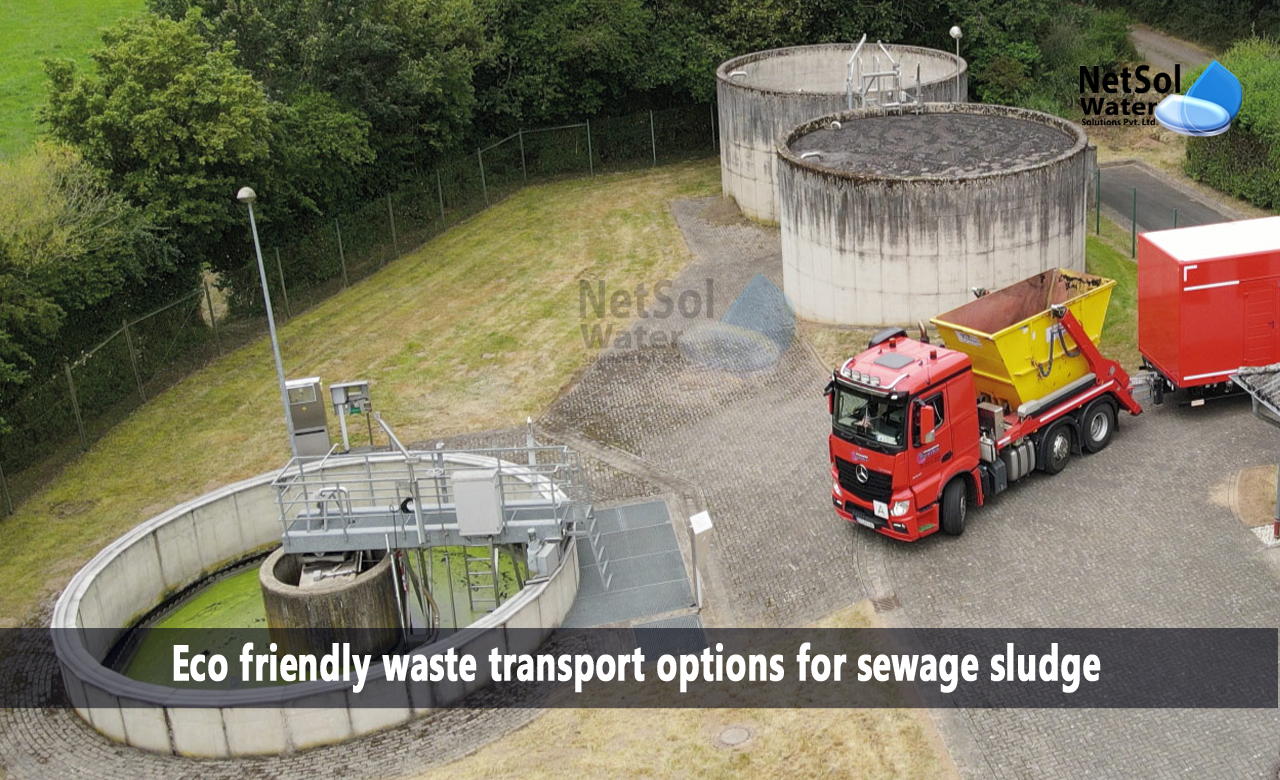Eco-friendly waste transport options for sewage sludge
Sewage treatment plants play a critical role in managing and treating wastewater, ensuring the protection of public health and the environment. As a byproduct of the treatment process, sewage sludge is generated, which requires proper disposal or beneficial reuse. One aspect often overlooked in the wastewater management process is the transportation of sludge, which can have significant environmental impacts if not handled sustainably.
In this blog, we will explore eco-friendly waste transport options for sewage sludge, focusing on green transportation methods that minimize carbon emissions and promote environmental sustainability.
The Environmental Impact of Sludge Transport
Transporting sewage sludge from treatment plants to disposal or reuse sites can contribute to greenhouse gas emissions, air pollution, and energy consumption. Conventional transportation methods, such as using diesel-powered trucks, can have a detrimental effect on the environment due to carbon dioxide emissions and air pollutants. To minimize these impacts, it is essential to explore greener alternatives for the transportation of sludge.
Eco-friendly Waste Transport Options
- Electric Vehicles (EVs): Electric trucks and vans are emerging as a promising solution for sustainable waste transport. EVs produce zero tailpipe emissions, reducing carbon footprint and air pollution. By utilizing renewable energy sources for charging, the environmental benefits of EVs can be maximized. Implementing electric vehicles in sludge transportation fleets can significantly reduce greenhouse gas emissions and promote clean transportation.
- Biofuels: Another eco-friendly option for sludge transport is the use of biofuels. Biofuels, such as biodiesel or biogas, can be derived from renewable sources like waste cooking oil, algae, or organic waste. These fuels have lower carbon emissions compared to fossil fuels and can be used in existing diesel-powered vehicles without significant modifications. Incorporating biofuels into sludge transport fleets helps reduce greenhouse gas emissions and dependence on finite fossil fuel resources.
- Rail Transport: Rail transport is a more sustainable alternative to road transport for long-distance sludge hauling. Trains have a higher capacity for carrying loads and are generally more energy-efficient than trucks. By utilizing rail transport for sludge transportation, carbon emissions can be reduced, congestion on roads can be alleviated, and the overall environmental impact can be minimized.
- Barge or Waterway Transport: In areas with access to waterways or rivers, utilizing barges or waterway transport can be an eco-friendly option for sludge transportation. Barges have the advantage of carrying large volumes of sludge while consuming less fuel compared to trucks. Waterway transport also reduces road congestion and minimizes carbon emissions, making it a sustainable choice for transporting sludge over longer distances.
- Local Reuse and Beneficial Application: One of the most environmentally friendly options for sludge management is to promote local reuse and beneficial application of sludge. By treating and processing sludge near the source, transportation requirements can be minimized or eliminated altogether. Local reuse options include agricultural land application, composting, or energy recovery through anaerobic digestion. Implementing these practices not only reduces transportation-related environmental impacts but also creates valuable resources from sludge.
Benefits of Green Sludge Transportation
- Reduced carbon footprint: Implementing eco-friendly waste transport options for sludge significantly reduces carbon emissions and helps combat climate change. By choosing sustainable transportation methods, sewage treatment plants can contribute to global efforts to reduce greenhouse gas emissions.
- Improved air quality: Green transportation options, such as electric vehicles and biofuels, minimize air pollutants associated with conventional diesel trucks. This leads to improved local air quality and reduced health risks for communities living along transportation routes.
- Resource conservation: Eco-friendly waste transport options help conserve natural resources by reducing the consumption of fossil fuels. By promoting renewable energy sources and sustainable transportation practices, sewage treatment plants contribute to resource conservation and environmental stewardship.
- Enhanced public perception: Adopting sustainable waste transport methods enhances the public perception of sewage treatment plants and their commitment to environmental responsibility. It demonstrates a proactive approach towards minimizing environmental impacts and promoting sustainable practices.
Conclusion
Transporting sewage sludge sustainably is a crucial aspect of wastewater management and environmental stewardship. By adopting eco-friendly waste transport options, sewage treatment plants can minimize carbon emissions, reduce air pollution, and promote sustainability. Electric vehicles, biofuels, rail transport, waterway transport, and local reuse options all offer viable and eco-friendly alternatives to conventional sludge transportation methods. By embracing these green transportation options, sewage treatment plants can contribute to a cleaner, greener future while ensuring effective waste management practices.
Netsol Water is Greater Noida-based leading water & wastewater treatment plant manufacturer. We are industry's most demanding company based on client review and work quality. We are known as best commercial RO plant manufacturers, industrial RO plant manufacturer, sewage treatment plant manufacturer, Water Softener Plant Manufacturers and effluent treatment plant manufacturers. Apart from this 24x7 customer support is our USP. Call on +91-9650608473, or write us at enquiry@netsolwater.com for any support, inquiry or product-purchase related query.



